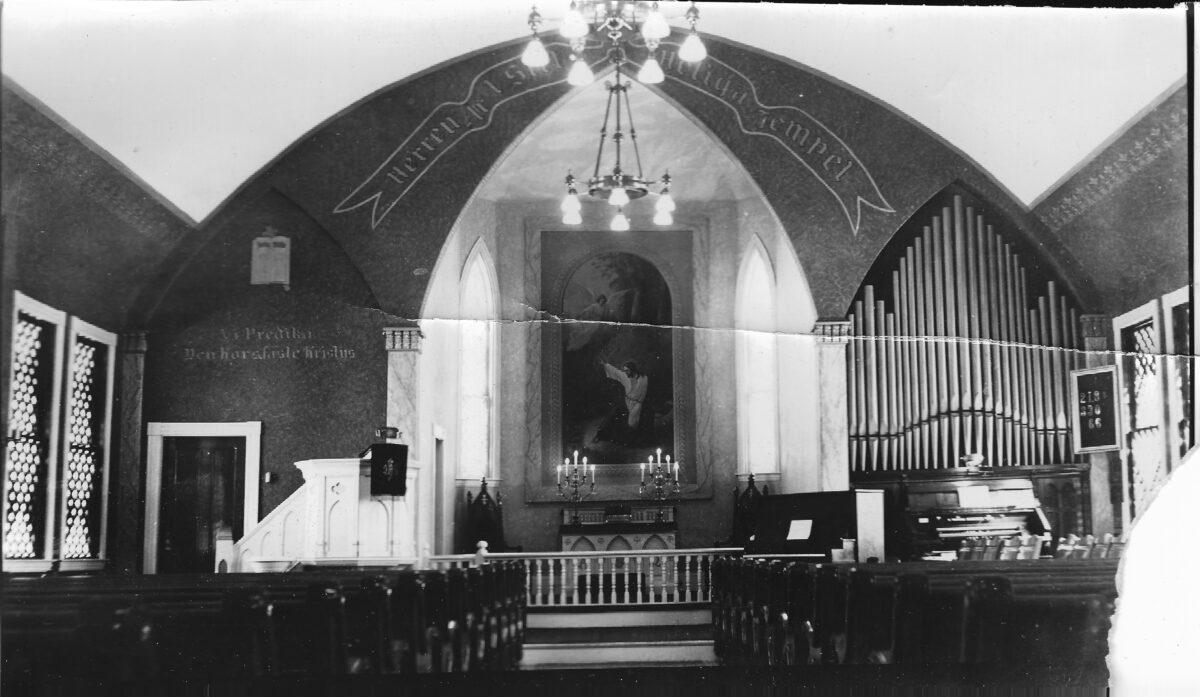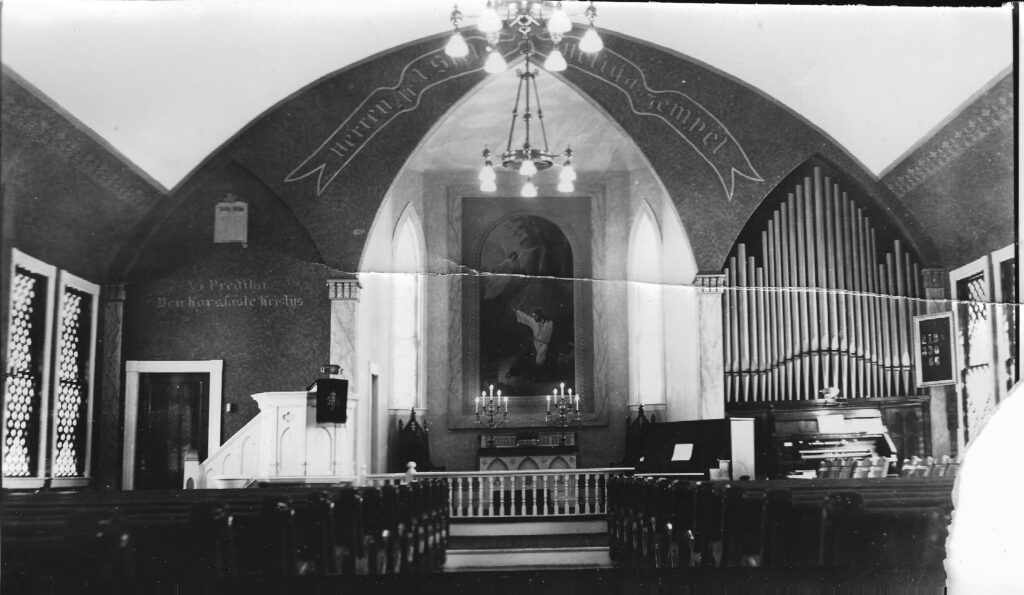Sent out in a time of transition

From the dictionary:
Transition: movement, passage, or change from one position, state, stage, subject . . . to another. Change.
Change: to make different the form, nature, content, future course . . . of (something).
God’s people undergoing change. God’s people in transition. Our texts this morning speak of Jesus’ disciples in this uncomfortable, uncertain, and messy place. We at Holy Trinity Lutheran Church in North Easton, MA, find ourselves also in this place. Our pastor, I think much beloved, has retired. We are beginning a journey from one point to another, from Pastor Polk to Pastor Question-Mark.
This is not a short, or frankly, easy journey – change never is. We are called to give this process our greatest care, attention, and prayer. We will study ourselves as honestly as possible, listen to each other, make recommendations, and ultimately vote . . . and then there will be a new servant of God at this place. A new chapter will begin in the story of Holy Trinity Lutheran Church.
So, as this community in transition, let’s look at our lessons this morning.
First, God’s people in transition, John’s Gospel. This passage takes us back in time, prior to Jesus’ arrest, prior to his death and resurrection. “Now before the festival of the Passover, Jesus knew that his hour had come to depart from this world and go to the Father.” (Jn. 13:1) Jesus knew that he was about to be betrayed, that he faced the cross, that he would be leaving his disciples. He gathered them together. He washed their feet, offering them an example of servanthood. He articulated a “new commandment,” to love one another as he had loved them. He promised them a gift of presence, the gift of the Advocate, the Spirit of Truth.
At the end of all this, in this time of transition like no other, Jesus looked up to heaven and he prayed. As he faced death, as the disciples face a new time without him, Jesus pours out his heart to the Father. The words tumble from his mouth – intertwined, interweaving, heartfelt words that speak of relationship, fellowship, connection, and unity. Jesus reminds the disciples that they are part of the divine community: Father, he prays, “‘all mine are yours, and yours are mine; and I have been glorified in them.’” Love and commitment spill forth from this reading – it’s Father, Son, and disciples.
Jesus also speaks of purpose and mission – a task assigned, a job to do. “‘As you have sent me into the world,’” Jesus prays to the Father, “‘so I have sent them into the world.’” The disciples are not left uncertain and confused as to what’s next. Jesus has a plan. They have a purpose.
Number two, God’s people in transition, the Book of Acts. On the first Easter morning, the women reported to the others: the tomb is open! Jesus has risen! The disciples – they later saw the risen, resurrected Christ; he ate with them! He told them to stay in Jerusalem “‘until you have been clothed with power from on high.’” (Lk. 24:49)
This past Thursday was Ascension Day, the day when the risen Jesus was lifted up into heaven – gathered to the Father. In the Ascension Day text from Acts, immediately prior to this morning’s reading, the risen Jesus is specific. He tells his followers, “‘You will receive power when the Holy Spirit has come upon you; and you will be my witnesses in Jerusalem, in all Judea and Samaria, and to the ends of the earth.’” (Acts 1:8) Note: again, Jesus gives them direction, names their divine task.
Our Acts lesson today picks up this story. As the disciples were waiting in Jerusalem, Peter noted a problem, there among these men and women of Jesus, including Jesus’ mother; there were about 120 of them. How could they be witnesses, he asked, when they were only 11? Jesus had appointed 12, which makes you think of the 12 tribes – all of Israel represented. Could they be God’s apostles – God’s “sent out” people – without the full contingent? With one less than Jesus himself had selected? After much prayer and by God’s leading, they chose Matthias to take Judas’ place, to make them complete again. Ready now for a new chapter.

Number three, God’s People in Transition, Holy Trinity Lutheran Church. A congregation that has served the community well into its second century, moved buildings, has a rich history of people and family connections, a story of careful stewardship and giving, stories of joy and sometimes of conflict. A congregation, like all congregations, that has faced the change and uncertainty of the coronavirus. A church that has just said goodbye to its pastor.
This morning ancient stories of holy transition meet our modern story of holy transition. Separated in time, but woven together in Jesus Christ, we glean the wisdom these ancient stories have to share with us.
First, and most elemental: did you notice that in Acts the believers were gathered in one place? In time of transition, they did not take a break, they did not disappear; the believers were together. This is not the time to say, “I’ll take a rest from worship.” It’s not the time to say, “I’ll let others do the hard work.” It’s not the time to say, “I’ll be back when the ‘real’ pastor comes.” For these early believers in transition, it was important that everyone was there, that the whole community was represented, that everyone participated in the task before them.
We here are incomplete without you. If you are unable to come to worship, ask about the new livestream service. Ask if a fellow congregation member might pay you a visit. Please, Holy Trinity in Transition, do not absent yourself from our community in this holy period.
Which reminds me of the congregational survey: the “Congregational Assessment Tool,” as it is called. I think you’ve heard of this! It offers the opportunity to share your faith, your opinions, your vision. It takes 30 minutes on the computer, and it’s intended that every single stakeholder here, every single one to whom this community is important and meaningful, has a voice. If you are a member from childhood, your voice is important. If you’ve been a member for 2 months, your voice is critical. If you are not a technical member of the congregation, but you are here all the time and care what happens in this Christian body, your voice is essential. As the involvement of each of the 120 members of the Acts community was essential, so are you.
P.S. If you’re intimidated by the computer, speak to Julie Johnson or Andrea Cady of the Transition Team. There are all sorts of ways to make this easier for the non-techie among us!
Second, our texts today remind us that in time of transition, God’s people pray. Jesus prayed as he and the disciples faced his death. The community in Acts “were constantly devoting themselves to prayer” as they waited in Jerusalem (Acts 1:14). Prayer is the way by which we grasp God’s plan for our collective future. Prayer is the truth by which we are persuaded to release our own (natural) desire to put our opinions first. Prayer offers life, in that we can better acknowledge, appreciate, and forgive our fellow Christians. Prayer increases our listening skills – listening to God refines our ability to listen to one another. Prayer is the conversation of relationship. And the building of relationship is key for people in transition.
Holy Trinity in transition, I ask you to pray – for Holy Trinity’s Council, for the Transition Team, for the future Call Committee, and for each other – for congregation members as we walk this transition path together. Pray for the process itself; that it may be God-filled, bursting with love, and conducted with mutual respect. Pray for clarity in decision-making. Pray for the candidates who may eventually be interviewed, and pray that a leader of vision, clarity, and faith will arise.
Pray at home in this time of transition. Pray here at church. Begin every gathering and meeting with prayer.
From today’s readings we should also observe: Jesus does not leave people in transition with no purpose. From John and in Acts, it is clear, crystal clear: we are the “apostles,” which again means “the sent-out ones.” Remember: Jesus says, “‘You will be my witnesses in Jerusalem, in all Judea and Samaria, and to the ends of the earth.” Jesus says, “As you have sent me into the world, so I have sent them into the world.”
We are not left wondering or confused – we belong “out there,” beyond the red front doors of this place. Our mission, our purpose, our Christ-given task is to be out in the world. Everything else we do, worship of Father, Son, and Holy Spirit; prayer; learning; caring for one another; caring for this building so that it may be a place of hospitality – these are the essential building-blocks that grow our mission of being the “sent out” ones in Easton, in Norton and Mansfield, and to the ends of the earth.
And finally, spoiler alert! Next Sunday is Pentecost! The Holy Spirit is coming in wind and in fire! So just be prepared! In this time of transition, look for the unexpected! In this time of wind and fire, be prepared for surprise! Isn’t ours the God who said, “I am about to do a new thing; now it springs forth, do you not perceive it?” (Isa. 43:19)
Beloved people of Holy Trinity Lutheran Church: you are wrapped in divine love and power and presence. You have been given a divine task. It is before you! So, fear not and go forth together, in this place, into God’s beautiful, bright, challenging, heavenly future!
So be it, amen!

